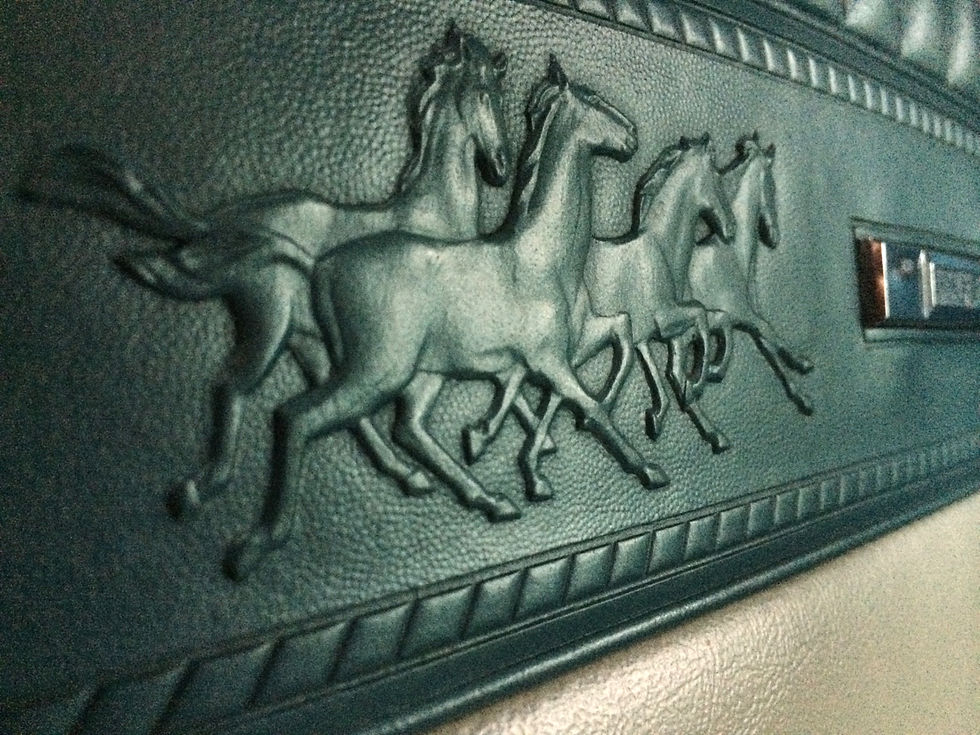If you’ve dealt with a power seat that won’t work properly, you know how frustrating it can be. Power seats are a convenience we often take for granted—until they malfunction, impacting both comfort and safety. And let’s face it, many of us have experienced the struggle of being left with a seat stuck in a position that only suited the last, possibly shorter, driver! But don’t worry; before replacing the entire seat assembly, know that many common power seat issues can be diagnosed and fixed without draining your wallet.

At Two Men One Garage, we specialize in helping DIYers and automotive enthusiasts find simple solutions to seat problems. Let’s walk through some basic troubleshooting steps to help diagnose what’s going wrong with your power seat and how you can get it working again.
Identify the Symptoms
Start by identifying the exact issue. Power seat problems can manifest in various ways, such as:
The seat won’t move in any direction
The seat moves, but only partially or only in one direction
The seat is stuck in one position
The seat moves, but very slowly or inconsistently
You hear strange noises (grinding, clicking, etc.)
Understanding what the seat is doing (or not doing) will help you narrow down the potential causes.
Check the Basics
Before diving into troubleshooting, check the basics:
- Ignition: Make sure the car is on or in accessory mode, as power seats often need the
ignition to be engaged.
- Fuses: A blown fuse is a common cause of power seat failure. Locate the fuse box (usually
under the dash or hood) and check for a blown fuse related to the power seat system.
- Seat Switch: Inspect the seat adjustment switch to ensure it’s not physically damaged.
Inspect for Electrical Issues
If the basics check out, the next step is to investigate electrical problems:
- Loose or Damaged Wiring: Power seats rely on wiring that runs underneath the seat. Over
time, wires can become damaged or disconnected, especially if the seat has been moved
frequently. Check for any obvious signs of wear or disconnected wires.
- Test the Seat Motor: Use a multimeter to test whether the seat motor is receiving power. If no
power is reaching the motor, the issue is likely upstream, possibly with the wiring or the seat
switch.
- Relays and Connectors: Inspect the connectors and relays. Corrosion or loose connections
can cause intermittent power failures.
Mechanical Problems
If the electrical system is functioning properly, the issue could be mechanical. Power seats are moved by small motors and gears, which can wear out over time:
- Seat Track Obstruction: Sometimes foreign objects (coins, pens, etc.) can get lodged in the
seat track, blocking movement. Clear any obstructions to see if that resolves the issue.
- Worn or Stripped Gears: Power seat mechanisms often use gears to translate the motor’s
power into seat movement. If these gears are stripped or worn, the seat may move poorly
or not at all. Replacing worn gears or motors is a common fix for this problem.
Motor Failure
If none of the above steps solved the issue, the seat motor itself may have failed. A common sign of a failing motor is not hearing it run and there is no movement at all. Replacing the motor is usually the solution in this case, and it’s something you can do yourself with the right tools and replacement parts.
At Two Men One Garage, we offer aftermarket power seat motors that fit a wide range of vehicles, from classic Ford Mustangs to modern trucks. Rather than replacing the entire seat assembly, you can swap out a faulty motor at a fraction of the cost.
When to Call a Professional
If you’ve gone through all these steps and the issue persists, it may be time to consult a professional. Some power seat issues can stem from more complex problems like a faulty control module or even a failing electrical system that requires advanced diagnostics.
"Bringing Your Seat Back to Life!"
Power seat issues can be annoying, but with some basic troubleshooting, you can often diagnose and fix the problem yourself. At Two Men One Garage, we’re here to support you with high-quality aftermarket parts and expert advice to keep your seats in top shape.
Got a question about diagnosing or fixing your power seat? Drop a comment below or reach out to us directly, and we’ll be happy to help!

Comments